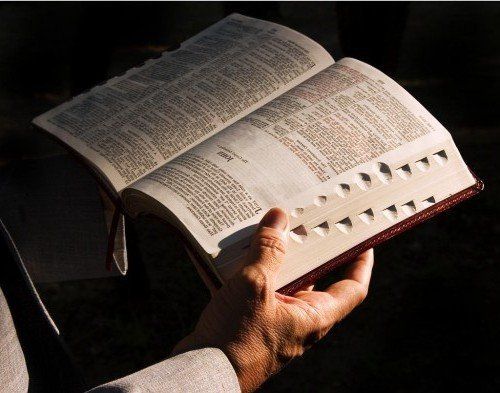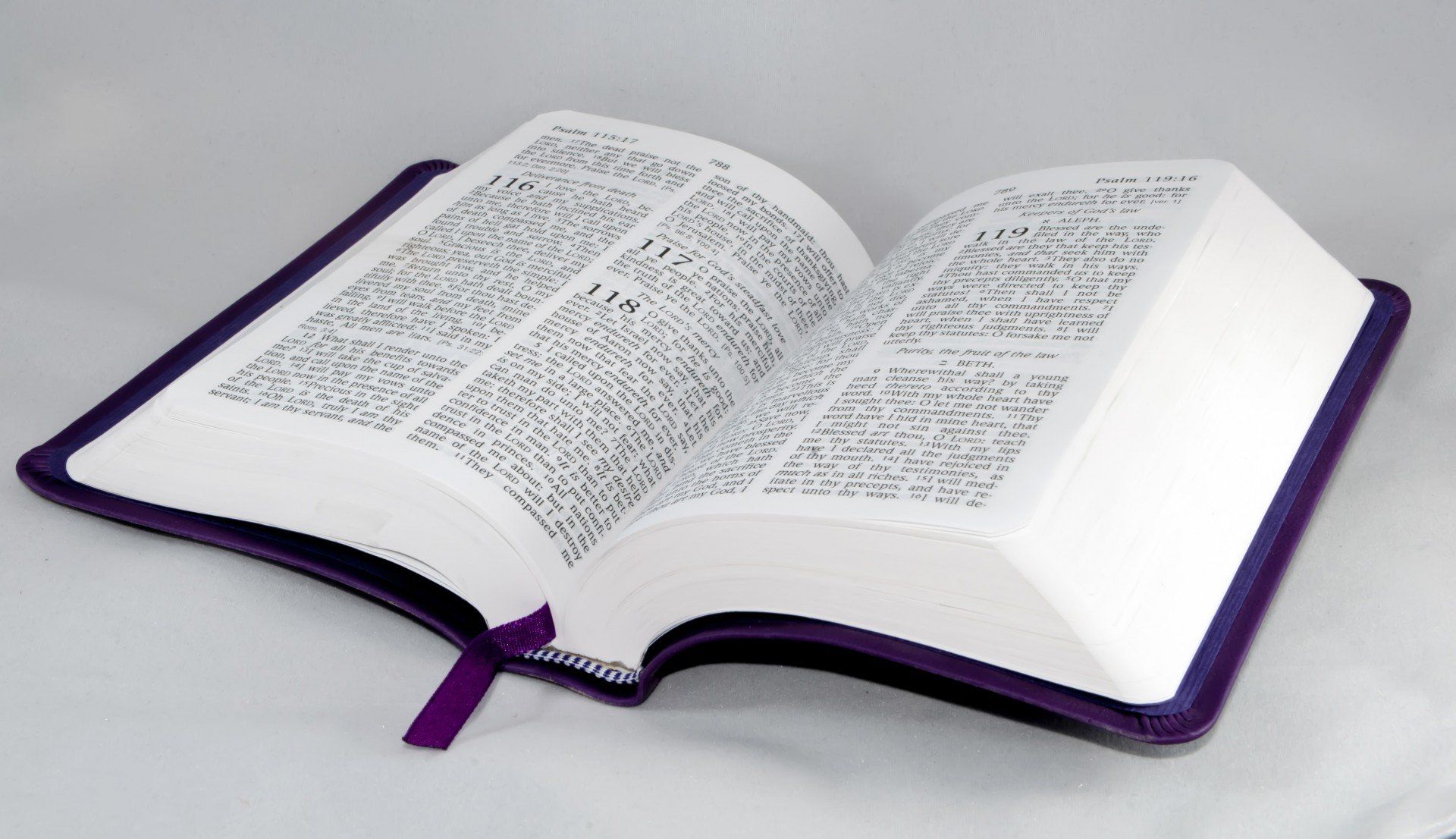Jesus Our High Priest

(Hebrews 7:1-28)
Chapter seven explains why we have a special cause for security in having a “high priest after the order of Melchizedek .” This chapter explains the two verses of the Old Testament, which mentioned Melchizedek. This “order” of priesthood is superior to the order of priests who served in the temple. The author exclaims, “ See how great he is! ” His greatness consists in the fact he has no beginning or end. He “ continues a priest forever ” ( 7:3 ). The levitical priests died, but he lives (7:8). His particular order depends, not on bodily descent, but on an indestructible life (7:16). Death prevents the old order of priesthood from continuing in office, but the new order “ continues for ever ” (7:23-24 ).
As we read through chapter seven, the argument may appear difficult to understand. But the point that stands out is that the “ order of Meichizedek ” is eternal (7:3, 8, 16, 23-24). Jesus Christ was not qualified to be a priest of the temple (7:14), but he belongs to a priesthood that lasts forever.
The point of this chapter is that the church has not been left alone . There is one who is able “ for all time ” to save those who draw near, since he “ always lives to make intercession for them ” (7:26 ). A church rooted in Christ, who saves “ for all time ,” is anchored in eternity. This church will survive. We need today to reaffirm the promises, which serve as an “ anchor of the soul .”
Typology
There is a device used several times in Scripture called typology that figures into our ability to appreciate this chapter. It is from this perspective on history that Melchizedek becomes a type of Christ. He prefigured what would be revealed in Jesus. He had some dim level of participation in the reality that Jesus would bring to light. The shadowy figure mentioned only at Genesis 14:17-20 and Psalm 110:4 is offered in Hebrews 7 as an Old Testament anticipation of Jesus.
Melchizedek didn’t get his priestly appointment through family ties as a descendant of Aaron. Indeed, insofar as the biblical record itself goes, he has no ancestry! Of course he had parents. And he may have had children. But insofar as the biblical data on him, we have no family tree. He is “without father or mother, without genealogy.” Why, one could even go further to say that the priest-king of Salem was “without beginning of days or end of life” – again, insofar as the record itself give us no details – and thus “remains a priest forever .”
Furthermore, in keeping with his motif of the superiority of Jesus, he proceeds to demonstrate the preeminence of Jesus even to Father Abraham. So when Abraham paid a tithe to Melchizedek, not only Abraham but all his descendants (i.e., those “still in the body of” Abraham) – including Aaron and the high priests descended from him – were granting the superiority of Salem’s priest-king to Abraham. Thus if it can be shown that Christ’s priesthood is of the Melchizedekan order, it will be proved – to our writer-preacher at least – that Jesus is superior both to Abraham and to the system of priests and offerings within Judaism.
The Melchizedekan Order
The Israelites understood that priests functioning within their community must come from the Tribe of Levi and that high priests must be descended from Aaron. So how could Jesus – who is of the Tribe of Judah – qualify for the priesthood, much less for the role of high priest? That is the question addressed next: (7:11-22).
This permanent change of priesthood has several implications. For one , it means that the covenantal system embodying the Aaronic priesthood would have to be changed . Perfection was not in view with the Law of Moses. It could not make those who lived under its ordinances and rituals perfect, and – to borrow the language of Paul – served best to make its subjects aware of their sinfulness and of their need for something more than its rules and regulations. “No one will be declared righteous in [God’s] sight by observing the law,” he wrote, “rather, through the law we become conscious of sin” (Rom. 3:20) .
Jesus is much more, however, than a mediator. “Jesus has become the guarantee (Gk, engyos ) of a better covenant” (v.22). Jesus is the personal guarantor whose indestructible life means that he is always on duty to see that we triumph over Satan’s devices. If his death was the ultimate sacrifice for sin that made further sacrifices unnecessary, his present function on our behalf as high priest means that we need not cower before threats and persecution (cf. Rom. 5:9). “Christ Jesus, who died – more than that, who was raised to life – is at the right hand of God and is also interceding for us” (Rom. 8:34 ). His work has brought us into a “better covenant” with God; it is a covenant written on hearts rather than stone tablets and carries the promise: “ I will forgive their wickedness and will remember their sins no more” (cf. Jer. 31:31-34 ).
He Meets Our Need!
The language that follows is the great assurance the Hebrew writer wanted the discouraged believers of his time to embrace .
(7:23-28 ).
What incredible language! “ He is able to save completely those who come to God through him .” “ He always lives to intercede for them .” And – well, I’m going to cheat here and sneak a look ahead in order to round out this incredible process of redemption – his gracious relationship with us makes us perfect in God’s eyes, even while we are stumbling and fumbling around down here! “By one sacrifice he has made perfect forever those who are being made holy” (10:14).
The preacher-writer of our text wanted his desperate hearers-readers to know there was one place they could go in their distress. Don’t quit on faith. Don’t turn back. Don’t give in to the pressures. Let your distress drive you to Jesus !
The beleaguered saints to whom Hebrews is addressed had found themselves awkward, unlovely, and undesirable. They didn’t fit their past social environments. Their old friends weren’t friends anymore. For some, even family had cut them off . Yet all of us need to be wanted! So Jesus could never be an “incidental luxury” or occasional Sunday guest for them. They would need him as their one bright thing for each day – until he came again for them. And so do we!
Conclusion
This text isn’t really about Melchizedek – any more than previous ones have been about angels, Moses, Joshua, or Sabbath. They are all about Jesus . For this preacher, everything is about Jesus! Tying together 2:17 with 7:1-28 , watch the three key terms he has used of him.
First , Jesus is faithful . Tested though he was, he not only survived but passed with flying colors. He is “holy, blameless, pure, set apart from sinners, exalted above the heavens” in his unsoiled nature as Son of God. Second , he is merciful . Although “set apart” in his personal holiness, Jesus has chosen not to set himself apart as aloof and unavailable to us. He has shared our humanity, endured our unbelieving rejection, borne our vulnerabilities, and taken our sin debt onto himself at Calvary. Oh, he is merciful beyond comprehension. And, finally , he is perfect for our situation of need. He forgives, empowers, disciplines, and reassures; at the end, he will raise us from the dead and transform us into the very likeness of his own indestructible, conquering, and glorious self.
Jesus. Remember, the subject of chapter 7 is not Melchizedek but Christ. Melchizedek serves as an illustration of Christ and then fades from view. Verses 20-28 form the climactic section, and here the name "Jesus" appears for the first time in the chapter. "Jesus has become the guarantee of a better covenant" (7:22 NRSV).
Bob's Blog









